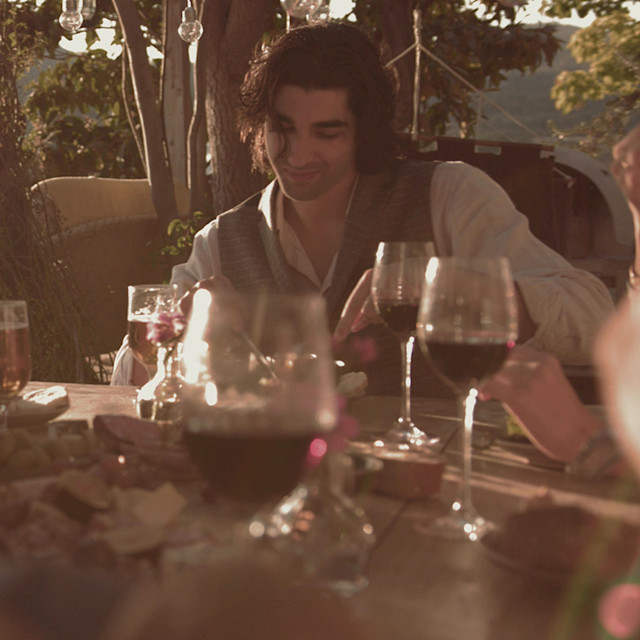According to one expert, building an authentic community begins with an invitation.
The idea that our relationships and connections to other human beings is an important part of living a healthy, fulfilling life is nothing new. In fact, it’s now a proven scientific fact—in 2017, Harvard released the results from its Study of Adult Development, one of the longest-running studies on happiness, which followed 268 men since they were students in 1938 and later their offspring. The results confirmed that it’s our personal relationships, more than anything else, that is our measure of happiness and wellbeing.
“When we gathered together everything we knew about them at age 50, it wasn’t their middle-age cholesterol levels that predicted how they were going to grow old,” said Robert Waldinger, director of the study, in a TED Talk about the findings. “It was how satisfied they were in their relationships.”
And yet, while brands and businesses may be using the word ‘community’ with growing frequency, societal changes spanning the internet boom and a pandemic seem to have made it increasingly challenging to find and nurture real-life social connections.
For Charles Vogl, an expert who has authored numerous books on the subject, including The Art of Community, and who works with leaders to help them build connections, the origins of his interest in the subject were deeply personal. After serving in the U.S. Peace Corps in northern Zambia, creating an independent documentary about a family escaping the Cambodian genocide and studying religion, ethics, and business in graduate school at Yale University, Vogl followed his wife to California and found himself stuck on what he wanted to do with his life.
“I felt unclear on how to plug into the world,” Vogl explains. “Then one day I met with the founder of [video game live-streaming platform] Twitch, and he mentioned that while he knew that the business would grow, he wanted to get better at connecting the people already on the platform. My head almost exploded with ideas that I realized I’d gathered from all the work and travel I’d been doing.”
Having now spent years researching and writing on the subject, Vogl notes that one of the concerning indicators of how disconnected we’ve become is that we even have to ask why having a community is important.
“I believe, and a lot of research seems to indicate, that it’s fundamental to our constitution—our existential nature is to be connected with others,” says Vogl. "The only way survival of the fittest works is when the group is one. As soon as it grows into two or more—the wolf pack—it becomes about cooperation so that the group can survive. Cooperation, and community, is in fact key for survival.”
One of the first blocks to building our own community is understanding exactly what we mean by the term.
“The conversation can be untenable because people find it hard to define what community even is,” Vogl says. “I define it as a group of people who share mutual concern for each other. If someone gets sick, if you need me to feed your kids one night because you’re working late, there’s a phone call that can be made where I don’t do a calculation on what I get out of it by doing this for you.”
Once you’ve articulated your definition of community, the next step is making an invitation.
“By invitation, I mean a request to spend time, where the person invited understands that somebody cares if they show up,” says Vogl. “If nobody understands that anyone cares if they show up, then we call that an announcement. I’ve noticed that we live in an era where we like to skip the invitation, and then complain that we don’t have a strong community. If there’s no invitations going, don’t be surprised that nobody shows up.”
The type of meeting that you’re inviting people to also matters. To really build connection, Vogl explains that you need to have “campfire experiences.” In other words, an experience that is intimate enough where you can build real connection and have meaningful exchanges.
“If you just invite me to a gala where I’m expected to bid on things, that’s not a place where we’re going to have that kind of intimate experience or conversation," he adds.
This principle of focusing on real, personal connection can also be applied to businesses that are looking to grow their community—although Vogl warns that once the desire to build community is done through a corporate lens, the dynamics change.
“As soon as someone is investing their time and money to bring people together with an extractive goal, it dramatically shifts what’s happening,” he explains. “The first thing is that they go in with a maximal extraction attitude or lens—they only want to know what they can do to get as much out of people as they can. But it’s self-defeating, because ultimately those are not the types of communities we want to join.”
As we look to build and nurture our personal communities, Vogl stresses that it’s just as simple as extending an invitation to join an activity that you enjoy and already do. And the attendance isn’t even what counts.
“I had a colleague who walks her dogs every day at 2:30 p.m.," he says. "After hearing me talk about these principles, she decided to invite all her neighbors to walk with her. Very few actually joined her for her walks, but that’s not important. What matters is that now all her neighbors know that she invited them to join her. She started a conversation with them where she requested to spend time with them. They know she cares. Invitations work, even when people say no.”
